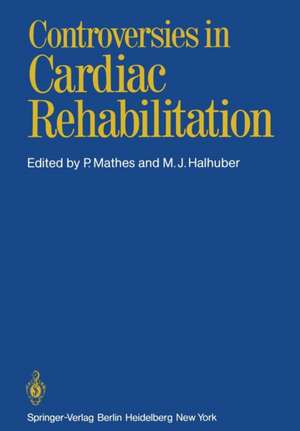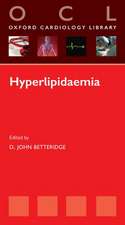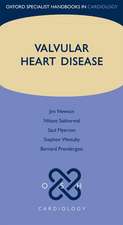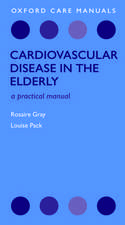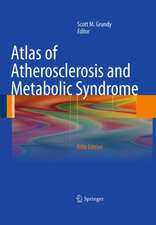Controversies in Cardiac Rehabilitation
Editat de P. Mathes, M. J. Halhuberen Limba Engleză Paperback – 22 noi 2011
Preț: 366.91 lei
Preț vechi: 386.22 lei
-5% Nou
Puncte Express: 550
Preț estimativ în valută:
70.21€ • 73.30$ • 58.11£
70.21€ • 73.30$ • 58.11£
Carte tipărită la comandă
Livrare economică 04-18 aprilie
Preluare comenzi: 021 569.72.76
Specificații
ISBN-13: 9783642683817
ISBN-10: 3642683819
Pagini: 228
Ilustrații: XIV, 207 p.
Dimensiuni: 170 x 244 x 12 mm
Greutate: 0.37 kg
Ediția:Softcover reprint of the original 1st ed. 1982
Editura: Springer Berlin, Heidelberg
Colecția Springer
Locul publicării:Berlin, Heidelberg, Germany
ISBN-10: 3642683819
Pagini: 228
Ilustrații: XIV, 207 p.
Dimensiuni: 170 x 244 x 12 mm
Greutate: 0.37 kg
Ediția:Softcover reprint of the original 1st ed. 1982
Editura: Springer Berlin, Heidelberg
Colecția Springer
Locul publicării:Berlin, Heidelberg, Germany
Public țintă
ResearchCuprins
The Traditional Concept of Risk Factors in Coronary Heart Disease - Has It To Be Changed?.- The Role of Diet.- The Role of Social Factors - Behavior Patterns or Risk Situations?.- The Role of Protective Factors.- Do the Standard Risk Factors Alter Their Role After the First Myocardial Infarction?.- Is There a Difference in Risk Factors in the Development of Angina Pectoris and Myocardial Infarction?.- Physical Activity as a Secondary Preventive Measure in Coronary Heart Disease - Yes or No?.- The Reasons for Recommending Physical Training as a Preventive Measure Following Myocardial Infarction.- Evidence to Date for the Beneficial Effect of Exercise Following Myocardial Infarction.- The Reasons for Detrimental Effects of Physical Training on Patients After Myocardial Infarction.- Coronary Surgery - A Measure of Rehabilitation?.- Does Surgical Therapy Alter the Prognosis of Coronary Heart Disease?.- Do Recent Changes in Medical Therapy Alter the Prognosis in Coronary Heart Disease?.- Long-Term Effects of Aortocoronary Bypass Surgery of Exercise Tolerance and Vocational Rehabilitation.- Return to Work After Coronary Surgery: Is There a Need for a Comprehensive Rehabilitation Programm?.- Higher Nervous Activity, Coronary Disease, and Sudden Death.- Adjusting to Coronary Artery Disease: Coping with the Problems of Convalescence Following Myocardial Infarction.- Evidence of a Relation Between Higher Nervous Activity and Sudden Death.- Incidence of Ventricular Arrhythmias in Coronary Artery Disease During Holter Monitoring and Stress Testing.- What Is Adequate Social Management of Patients with Coronary Heart Disease?.- Is the Influence of Social Classes in Rehabilitation of Cardiac Patients Inevitable?.- Patient and Family Education and Counseling: A Requisite Component of Cardiac Rehabilitation.- Is There Sufficient Appreciation of Vocational Counseling?.- What Kind of Organization Do We Need in Rehabilitation?.- Can We Improve the Prognosis of Coronary Heart Disease?.- Institutionalized, Residental Rehabilitation of Patients with Ischemic Heart Disease?.- Do Different Kinds of Social and Cultural Settings Require Different Kinds of Rehabilitation Programme?.- Which Diagnostic Procedures Are Really Helpful at Which Stage of Coronary Heart Disease?.- Stress Testing.- Contribution of Nuclear Cardiology to the Diagnosis of the Various Stages of Coronary Artery Disease.- Echocardiography in Coronary Artery Disease.- Towards the Optimal Lead System and Optimal Criteria for Exercise Electrocardiography.- Coronary Angiography.- Ambulatory Electrocardiographic Monitoring.- ECG Telemetry.
